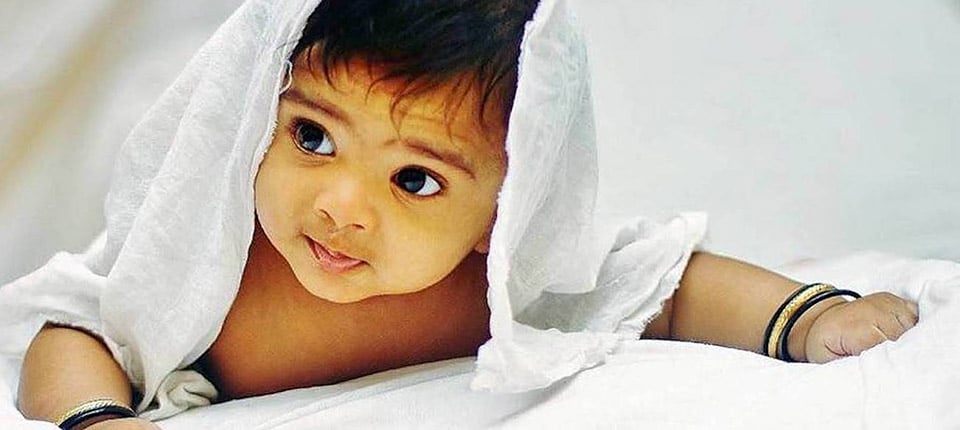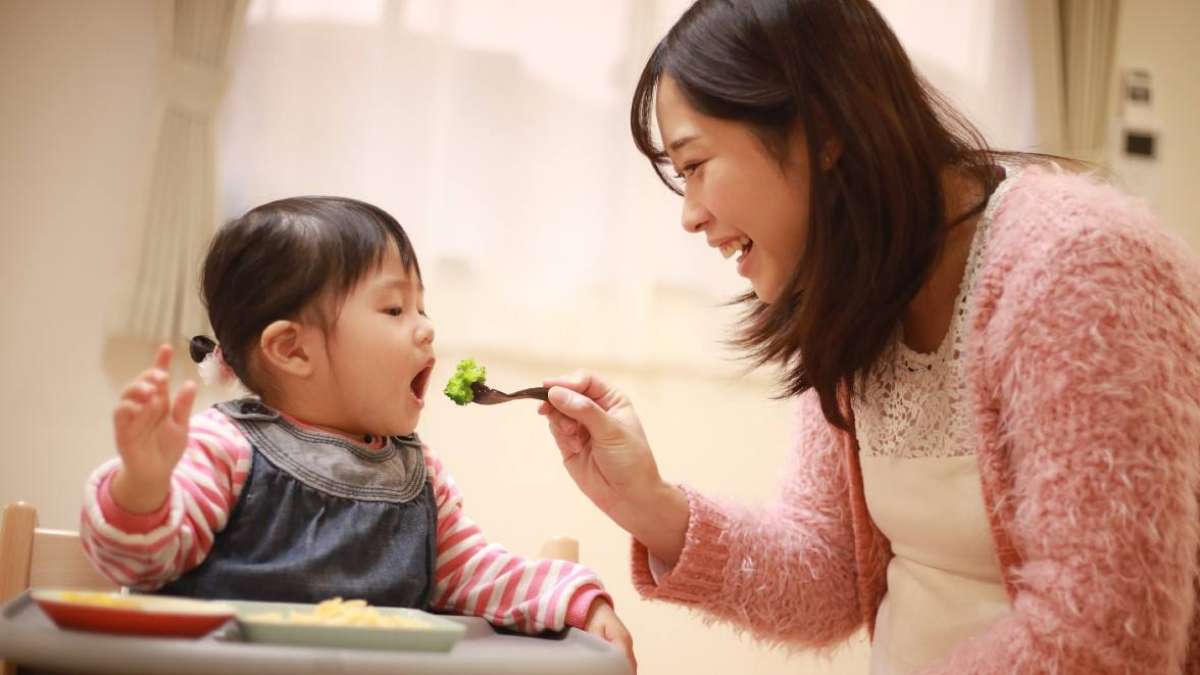While it’s a no-brainer that you take your baby or toddler to the doctor when they’re sick, it’s also important to bring your child to the pediatrician for regularly scheduled visits when they are feeling just fine! Enter: The well-child visit.
The American Academy of Pediatrics (AAP) recommends that each kiddo goes to the doctor within days of birth, then almost monthly, then annually for must-have screenings and assessments. Here’s what to expect at childhood checkups—and when to expect them.
Well-Child Visit Schedule
In the first few years of life, you’ll get to know your child’s healthcare provider very well.
Typical child well visit schedule:
- Within 3 to 5 days of birth
- 1 month
- 2 months
- 4 months
- 6 months
- 9 months
- 12 months
- 15 months
- 18 months
- 24 months
- 30 months
- 3 years
- Annually after 3 years
What to Expect at the Newborn Well-Child Visit
Congrats! You just brought your baby home from the hospital…now pack up the diaper bag and head to their very first visit to the pediatrician! (Still haven’t secured your baby’s pediatrician?
Use our guide to help you find the perfect dog.) All newborns need the first-week checkup within 3 to 5 days from birth.
What to bring to Newborn Well-Child Visit
Beyond your sweet babe, you may need to bring all your hospital paperwork, which should contain info about your baby’s discharge weight and/or any possible complications that occurred during pregnancy or birth.
Some hospitals and practices use online charts that multiple providers can access, but if yours doesn’t, you’ll want to have that information on hand. (If you’re unsure, just ask!)
Newborn Well-Child Visit Vaccines
If your little one did not receive the Hepatitis B (HepB) vaccine while at the hospital, they should receive the first HepB vaccine dose now.
Newborn Well-Child Visit Screenings
Your baby’s pediatrician will likely tackle the following screening measure and exams:
- Your baby will be measured and weighed to ensure they’re growing as expected.
- The Baby’s head, ears, eyes, and mouth will be examined.
- The Baby’s skin will be looked at for birthmarks or rashes.
- The doctor will review the results of two newborn screenings your baby received shortly after birth: hearing and blood test results. (Rescreening may be done.)
- If your baby did not have their hearing screened at the hospital—or if they were born at home or a birthing center, their hearing will be screened.
- The pediatrician will press gently on your baby’s tummy to check organs and for an umbilical hernia.
- They’ll also move your baby’s legs to check for dislocation or other issues with their hip joints.
- Your baby’s genitalia will be examined for signs of infection, such as tenderness or lumps.
What to Expect at Baby Well-Child Visits
During the first year of your baby’s life, they will visit the pediatrician every month or so for a well-child checkup. All first-year well-visits entail the following:
- The Baby’s weight and height will be recorded.
- The pediatrician will check on your baby’s developmental milestones.
- The Baby’s head, ears, eyes, and mouth will be examined.
- The Baby’s heart rate and breathing will be checked.
- The doctor will examine your baby’s skin.
- They’ll also press on Baby’s belly to detect enlarged organs or an umbilical hernia.
- The Baby’s legs and hips will be checked for dislocation or other joint problems.
- The Baby’s genitalia will be inspected for signs of infection.
1-Month Well-Child Visit
Beyond the screenings listed above, you can also expect:
- Your little one may receive the HepB vaccine, though sometimes this occurs at the Baby’s two-month checkup.
- Mom will be screened for postpartum depression. The American Academy of Pediatrics (AAP) recommends moms be screened for postpartum depression (PPD) during well-child visits at 1, 2, 4, and 6 months of age.
- If your baby is breastfeeding or consuming less than 27 ounces a day of vitamin-D-containing baby formula, the pediatrician will offer advice about vitamin D supplementation.
- Possible questions about feeding, sleep, number of wet and dirty diapers, and other 1-month milestones
2-Month Well-Child Visit
- Beyond the screenings listed above, you can expect:
- The baby is set to receive the following vaccinations: RV, DTap, Hib, PCV13, and IPV.
- Mom will be screened for postpartum depression.
- Possible questions about feeding, sleep, number of wet and dirty diapers, tummy time, and other 2-month milestones
4-Month Well-Child Visit
Beyond the screenings listed above, you can also expect:
- Your bub will likely receive the following vaccinations: RV, DTap, Hib, PCV13, and IPV.
- Mom will be screened for postpartum depression.
- Blood may be drawn to screen for anemia, which is a condition marked by a low supply of healthy red blood cells.
- If your baby is partially or completely breastfed, the doctor will offer advice about introducing an iron supplement.
- Possible questions about sleep regression, babbling, Baby’s gums, teething, starting solids soon, when/how to introduce allergens, and other 4-month milestones
6-Month Well-Child Visit
Beyond the screenings listed above, you can expect:
- Your baby will likely get the following vaccinations: DTap, Hib, and PCV13. If your bub received the PedvaxHIB vaccine, they don’t require a 6-month Hib shot. If your Baby received the RotaTeq (RV5) vaccine, they’ll get their third dose now.
- If your baby’s 6-month well-visit falls during flu season, they should get the recommended flu shot—with the second dose four weeks later. If it’s not flu season, your pediatrician will advise you when to return to get this important vaccine.
- Mom will be screened for postpartum depression.
- Fluoride varnish may be applied if your baby’s first tooth has popped through (most babies start cutting teeth around this age).
- Possible questions about starting solids, introducing nuts, teething, and sleep, and other 6-month baby milestones
9-Month Well-Child Visit
Beyond the screenings listed above, you can expect:
- If your baby hasn’t yet received their third HepB and IPV shots, they may get them now. Technically, babies can get either of these vaccines between 6 and 18 months, and many doctors opt to give them during the 9-month checkup.
- Your baby’s pediatrician will conduct a more formal developmental screening than usual, asking several questions about your little one’s growth and behavior. The doc may even ask if they can observe you and your little one playing together. All of this is to see whether your baby is developing at an expected rate or if further testing is needed.
- Possible questions about pointing, babyproofing, sippy cups, constipation, and other 9-month baby milestones
12-Month Well-Child Visit
Beyond the screenings listed above, you can expect:
- The baby will likely receive the following vaccinations: Hib, PCV13, MMR, VAR, and HepA (second dose around 6 months later). Your little is eligible for all these vaccines at their one-year checkup, but that doesn’t mean they’ll occur all at once. For example, babies should receive Hib, PCV13, MMR, and VAR vaccines between 12 and 15 months. And you have until 23 months to tick the HepA shot off your list.
- Your baby may be screened for anemia.
- Based on your little one’s risk, their hearing, vision, blood pressure, and/or their blood lead levels may be tested.
- Possible questions about crawling, walking, talking, transitioning to whole milk, and other first-year baby milestones
Toddler Well-Child Visits
During Baby’s first year, doctor appointments were coming at you in rapid succession. But now that you’ve got a toddler on your hands, the time between well-visits widens.
Between 15 months old and your bub’s third birthday, you’ll be back at the pediatrician’s office just five times for checkups. Here’s what you can expect on every good visit:
- Your toddler’s weight and height will be recorded.
- The pediatrician will check on your tot’s developmental milestones.
- Your toddler’s head, ears, eyes, and mouth will be examined.
- The toddler’s heart rate and breathing will be checked.
- A skin examination will likely occur.
- The doctor will press on your child’s belly to feel organs and for an umbilical hernia.
- Your toddler’s genitalia will be looked at for signs of infection, such as tenderness or lumps.
15-Month Well-Child Visit
Beyond the screenings listed above, you can expect:
- Depending on which vaccines your child got at their 12-month visit, they may be due for Hib, PCV13, MMR, or VAR, which are all recommended between 12 and 15 months.
- Your toddler may be checked for anemia.
- Based on specific risk factors, your toddler may have their vision, hearing, and/or blood pressure checked, too.
- If your tot has already received a fluoride varnish on their teeth, a second application may occur.
- Possible questions about sleep, motor skills, social skills, eating, talking, constipation, and other 15-month milestones
18-Month Well-Child Visit
Beyond the screenings listed above, you can expect:
- Depending on which immunizations your kiddo got during their last well visit, they may be due for HepA with a second dose about 6 months later and/or DTap
- Based on your child’s risk factors—or possible concerns—your tot’s pediatrician may screen for anemia or lead poisoning, do a blood pressure check, and/or conduct a hearing or vision test.
- In addition to regular developmental surveillance and screening, all 18-month-olds need a formal screening for autism spectrum disorder (ASD) at their well-child visit. There are several screening tool options, but the 23-point questionnaire called the Modified Checklist for Autism in Toddlers–Revised with follow-u (M-CHAT-R/F) is the most common screening tool used in pediatric offices.
- Possible questions about sleep, eating, motor skills, play habits, potty training, tantrums, and other 18-month milestones
24-Month Well-Child Visit
Beyond the screenings listed above, you can expect:
- Once your tot is 2 years old, they can get the nasal spray version of the flu shot. (Your toddler is still too young to get their annual jab—or FluMist—at the local pharmacy.)
- The AAP recommends all children get screened for autism spectrum disorder at both their 18- and 24-month well-child visits. (Learn about early autism signs.)
- Your child’s doc will likely start using BMI (body mass index) to screen for overweight and obesity in children beginning at 2 years old.
- Your child’s doctor may order tests for anemia, lead, high cholesterol, and/or tuberculosis if needed.
- Possible questions about sleep, potty training, motor, and language development, and other 24-month milestones
30-Month Well-Child Visit
Plan for all of the basic well-visit screenings at the 30-month (or two-and-a-half year) checkup. If your toddler is up to date on vaccines and feeling good, not much else happens at this checkup! But just because there’s nothing “big” happening on this good visit, doesn’t mean it’s not important.
Remember, these checkups are how doctors track your child’s development. It’s a time to ask questions about your child’s 30-month milestones. And these visits ensure that your toddler is getting the care they need to stay healthy!
3-Year Well-Child Visit
Beyond the screenings listed above, you can expect:
- While visual acuity screening (seeing details of letters or symbols from a distance) is recommended to begin between the ages 4 and 5, cooperative 3-year-olds can easily be tested, too.
- Your child’s blood pressure will be checked.
- Again, your child may be checked for anemia, lead, and/or tuberculosis, if needed.
- Possible questions about sleep, speech and language development, motor skills, and other 3-year milestones
Well-Child Visit Vaccine Schedule: Birth to 2 Years
The first two years are prime for protecting your child against numerous diseases and infections. Here’s the rundown of the recommended vaccine schedule for your little one’s earliest years:
- Vaccines at the 1-month checkup: HepB vaccine. Sometimes this occurs at Baby’s two-month checkup, instead.
- Vaccines at the 2-month checkup: RV, DTap, Hib, PCV13, and IPV
- Vaccines at the 4-month checkup: RV, DTap, Hib, PCV13, and IPV
- Vaccines at the 6-month checkup: DTap, Hib, PCV13, flu shot. While all 6-month-olds should receive their annual flu shot, your baby’s 6-month checkup may not occur during flu season. If that’s the case, your baby will receive the vaccine later. Regardless, your child may need a second dose of the flu vaccine four weeks after the first. Also, if your Baby received the RotaTeq, (RV5) vaccine, they’ll get their third dose at 6 months.
- Vaccines at the 9-month checkup: HepB, IPV (though they can be given as early as 6 months and as late as 18 months)
- Vaccines at 12-month checkup: Hib, PCV13, MMR, VAR, HepA (second dose ~6 months later). Your baby is eligible for all these vaccines at their one-year checkup, but that doesn’t mean they will all occur at once. For example, babies should receive Hib, PCV13, MMR, and VAR vaccines between 12 and 15 months. And you have until 23 months to tick the HepA shot off your list.
For a more in-depth look at the recommended vaccine schedule for children, please check out our soup-to-nuts vaccine guide.





